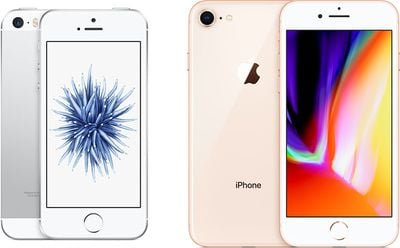Apple's "iPhone SE 2" is scheduled to go into mass production in January 2020 and will launch at the end of March, according to the latest information from reliable Apple analyst Ming-Chi Kuo.

The timing basically tallies with Kuo's previous reports on the so-called "iPhone SE 2," in which he predicted a Q1 2020 release for the device, which is expected to start at $399.
Relying on historical patterns in Apple's product release schedule to predict future launches is not without risk, but March has traditionally been the launch month of Apple's more affordable iPhone.
The original iPhone SE was announced on March 21, 2016, pre-orders began on March 24 and the device was officially released on March 31, 2016. It was re-released almost a year later on March 24, 2017 with larger storage capacities. Apple has also held special launch events in the last week of March for the last two years.
Specs for the new low-end iPhone are said to include:
- 4.7-inch display
- A13 CPU (same as iPhone 11)
- 3GB LPDDR4X RAM
- 64GB and 128GB options
- Space Gray, Silver and Red colors
- Home button
- No 3D Touch
Kuo expects the device to look similar to the iPhone 8 and believes it will be a popular upgrade option for existing iPhone 6 and iPhone 6S owners, serving as a "key growth driver" for Apple in 2020. He believes these customers have low desire for new features like Face ID and multiple cameras, suggesting the "iPhone SE 2" will stick with Touch ID and a single-lens rear camera.
In terms of shipments, Kuo estimates that monthly shipments of the iPhone SE 2 will be between 2 million and 4 million. Kuo also expects the iPhone SE 2 will use a liquid crystal polymer LCP (Liquid Crystal Polymer) antenna design to facilitate transmission efficiency.
According to other industry sources, LG is in talks with Apple to supply LCD displays for the successor to the iPhone SE, with the panels currently undergoing last-minute quality checks.
Of course, "iPhone SE 2" might not be the final name of the device, with iPhone 8s and iPhone 9 speculated as other possibilities. With a larger 4.7-inch display, the device won't be as portable as the original iPhone SE, which will surely disappoint fans of that model.























